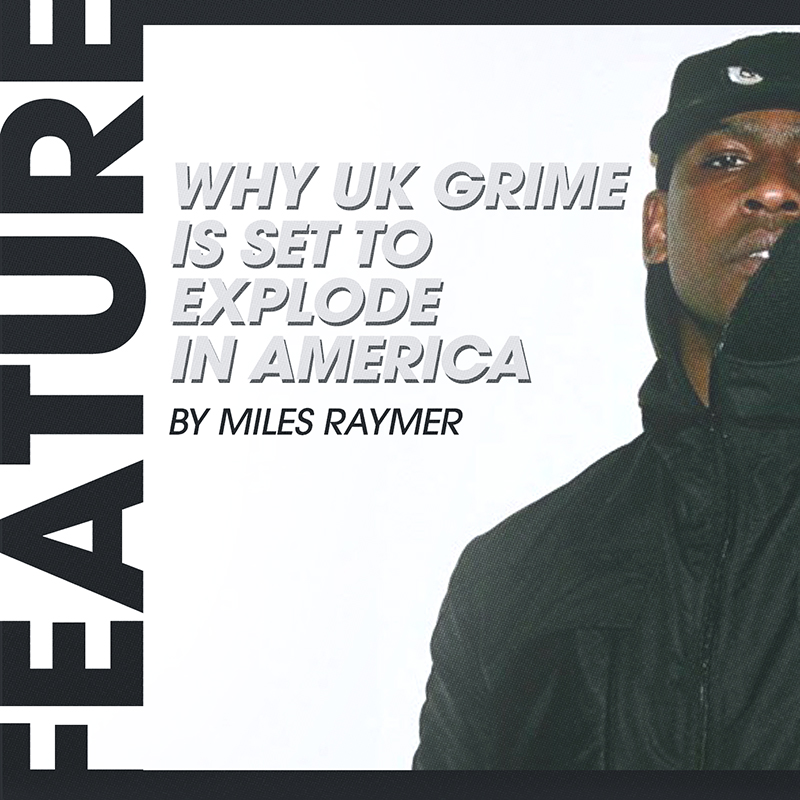

Skepta’s “Shutdown” is this summer’s internet equivalent of a hip-hop street hit–you won’t hear it on commercial radio, but if you spend any amount of time hanging out with the right kind of forward-looking rap fan that’s plugged into the genre’s digitally driven leading edge you’ll hear it in steady rotation. In classic street hit style, “Shutdown” is immediately catchy even though it avoids bending to pop conventions. Bucking the trend of rappers relying increasingly on putting melodies in their flows, Skepta spits in a blunt near-monotone that extends even to the chorus, where the hook comes not from a catchy melody but some tricky feats of repetition and rhythmic acrobatics. It’s a thoroughly aggressive song that gets right up in the listener’s face and stays there for its entire three-minute running time, and you kind of never want it to leave.
Street hits, whether online or IRL, are a good indicator of where rap’s headed in the near future. (See pre-Pluto Future’s cyborg blues-trap that’s sweeping the charts three years later.) What’s interesting about Skepta’s current level of blossoming cult success is that he’s not coming out of current rap hotbeds like Atlanta or Compton, but London’s grime scene, which has been around for ages but has never managed to get a steady handhold in the States.
This isn’t for lack of trying. A lot of people have put a lot of work into engineering grime’s big break in America over the past ten or so years, ever since the scene first started to make its presence felt across the Atlantic. There was a point around the middle of the last decade where a large number of people in the media and music industry were convinced that grime was the next big thing in hip-hop, and they invested heavily in the form of column inches and record deals. Dizzee Rascal and Wiley were suddenly popping up in mainstream music magazines. Vice put out not one but two full-length grime compilations. Jay-Z signed the mediaphilic white grime rapper Lady Sovereign to Def Jam and hooked her up with Dr. Luke and Missy Elliott.
The campaign was a top to bottom failure, though, and after the grime bubble popped a lot of its biggest American boosters distanced themselves from it, and keeping up on the UK grime scene became another weird hobby for message board dudes. It wasn’t hard to see why American audiences didn’t embrace the sound. Historically, hip-hop acts from anywhere outside the US have had an impossible time breaking in States, even if they rapped in English. Grime also diverged from the traditional hip-hop template in a number of crucial ways–like the emphasis on the one and three notes of a beat rather than the two and four, which it inherited from reggae via drum ‘n’ bass–that kept it from fitting in alongside American rap on the radio and in clubs. And for an audience that puts a particular emphasis on the lyrics, the bombardment of foreign slang delivered in thick East London accents could have been a deal breaker by itself.
Ten years of unprecedented stylistic innovation later, the American hip-hop scene looks a lot more open to grime coming in. It’s mostly a result of natural evolution–trap has cured hip-hop of its lingering reliance on boom-bap rhythms, while the post-Wayne wave of codeine-slurry, Auto-Tuned rappers has made understandable lyrics optional. But there have also been a couple of very impassioned and visible advocates here, like Danny Brown, whose past two albums are thick with grime’s influence, and Drake, who’s something like Skepta’s biggest fanboy, and who appears alongside him on a recent track by Nigerian pop singer Wizkid.
If and when grime finally breaks in the US, which is looking increasingly likely, it might not be Skepta or another UK artist doing the breaking. The Southern mixtape rap scene, which is producing more new rap stars than anywhere else in the world, is already drifting toward something that sounds like grime. (OG Maco’s underground smash “U Guessed It” is a grime track in everything but name). And some artists down there are making that connection explicit.
Louisiana producer Suicideyear just dropped a single with London grime rapper K9 that finds common ground between grime and trap that’s begging to be dug into further. Suicideyear may be out toward the fringes of the Southern rap community, but its deeply ingrained tradition of wild stylistic experimentation means that new sounds have a habit of traveling rapidly from the fringe to the mainstream. It could be that the future of hip-hop’s going to come from some strange intersection between East London and Baton Rouge.